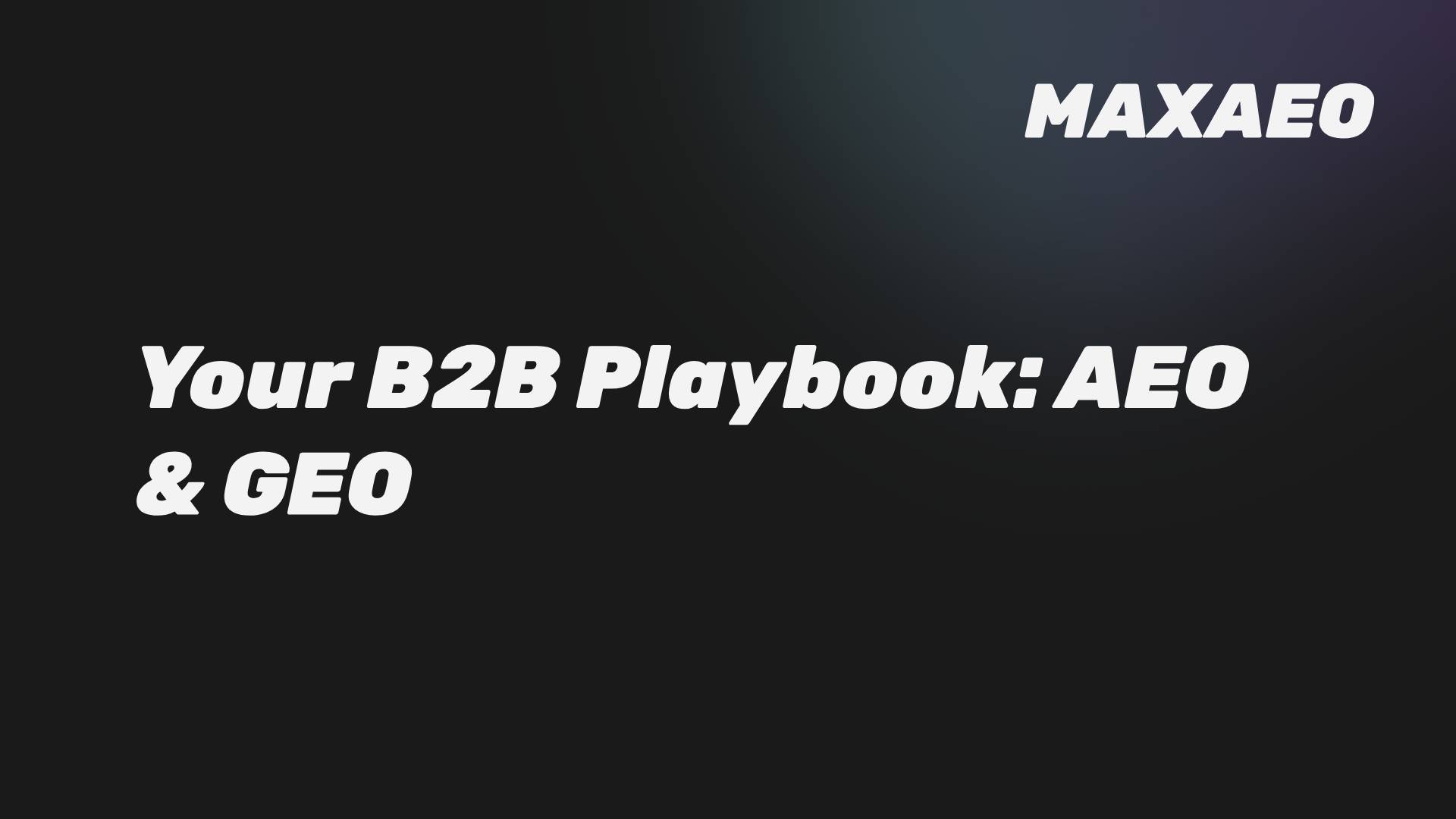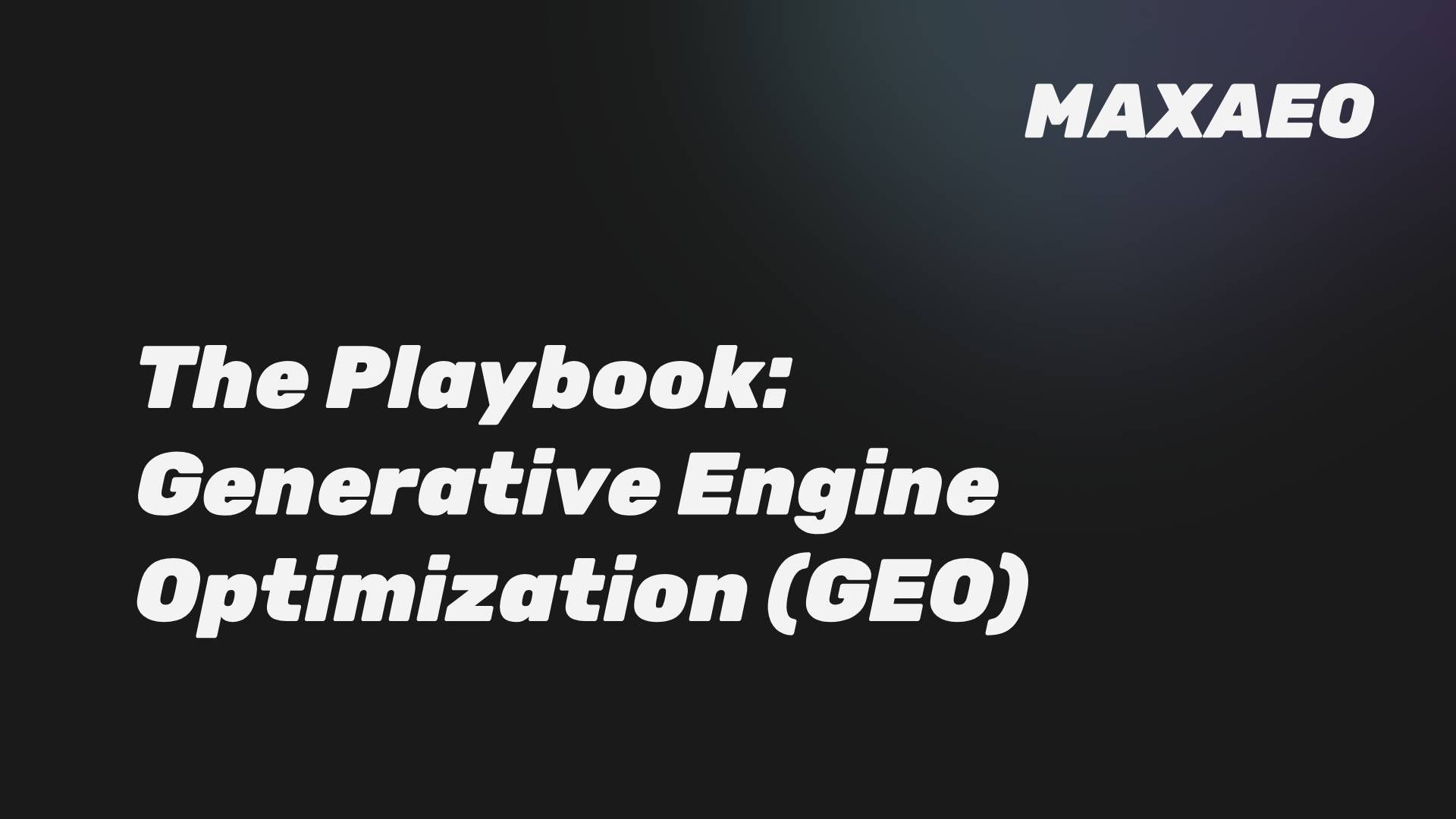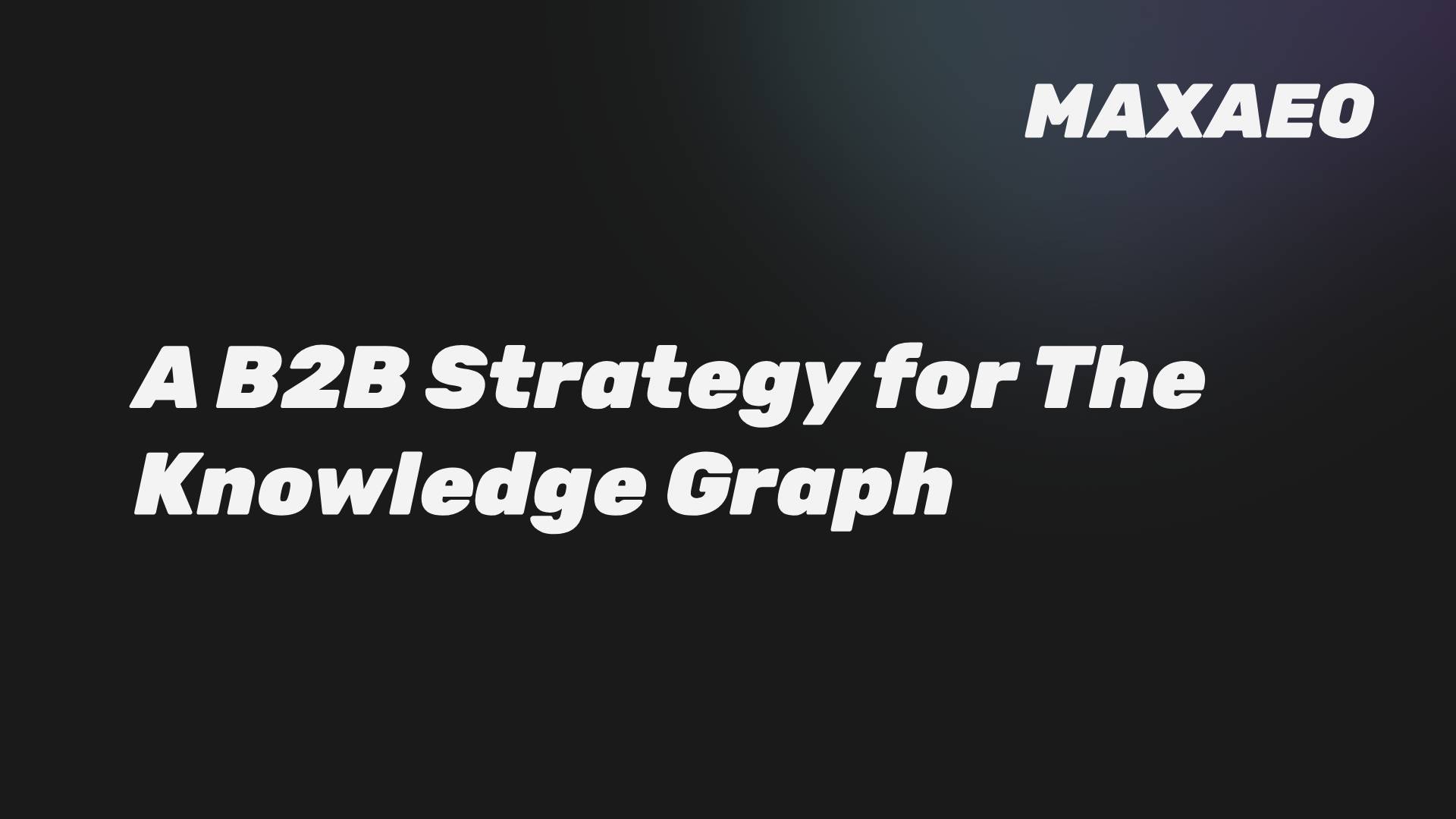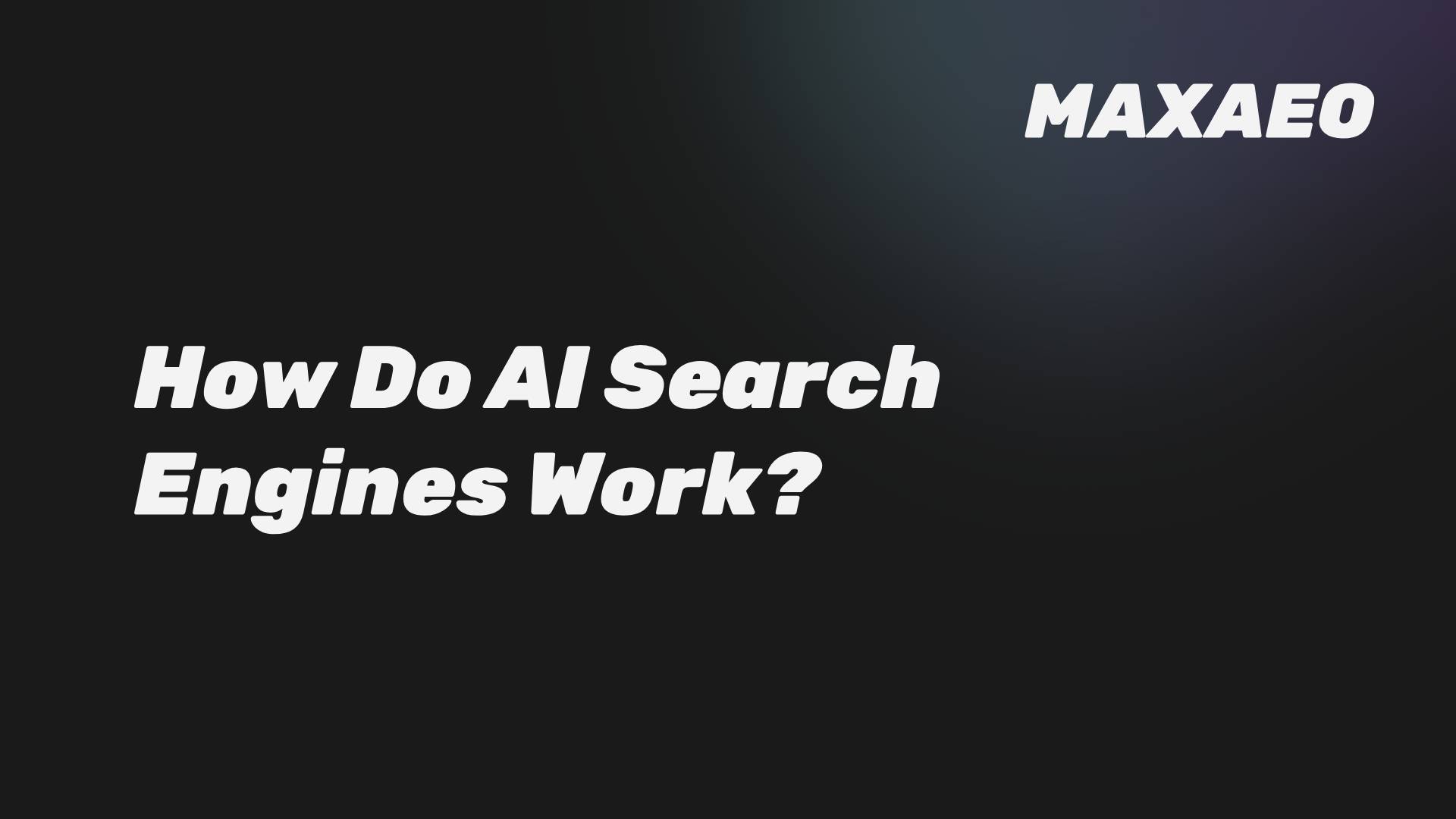· Anton Grant · Digital Marketing · 4 min read
GEO vs. SEO: The New Playbook for an AI-Driven World
Traditional SEO is no longer enough for B2B success. This guide for marketing leaders explains the strategic difference between Generative Engine Optimization (GEO) and SEO and provides the new playbook for winning in the age of AI.
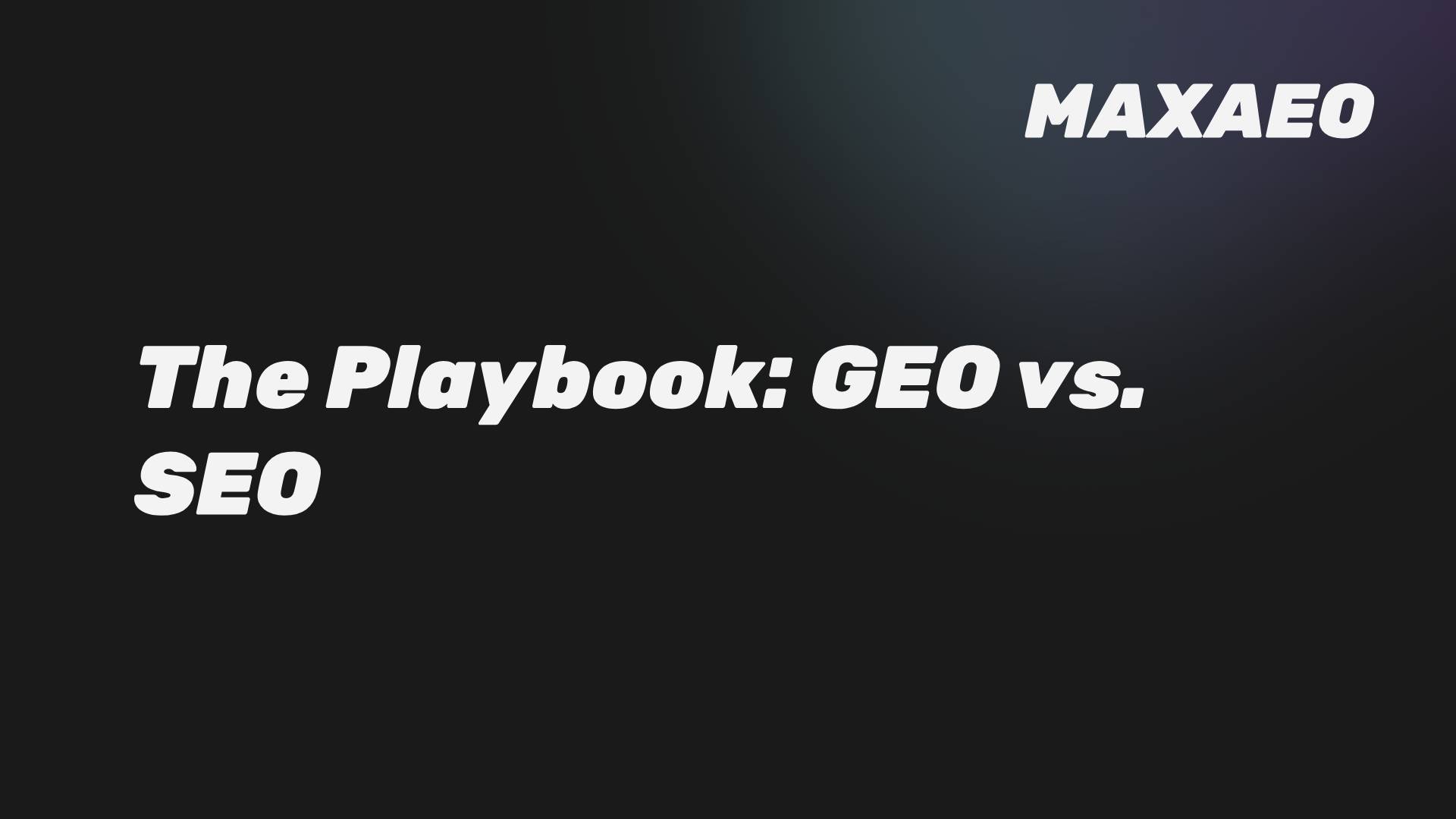
GEO vs. SEO: The New Playbook for an AI-Driven World
Your brand’s authority is no longer solely defined by your ranking on a Google search page. The rise of Artificial Intelligence (AI) search has created a new battleground where influence is more valuable than position. For B2B leaders, continuing to rely on a traditional Search Engine Optimization (SEO) playbook is a strategy for managed decline.
This guide provides a clear strategic framework for understanding the critical differences between Generative Engine Optimization (GEO) and SEO. We will explain why the old metrics are becoming obsolete and outline the new playbook required to build and defend your brand’s narrative in the age of AI.
What is the Core Difference Between SEO and GEO?
The core difference is the strategic objective. SEO is the battle for visibility on a search engine results page (SERP) with the goal of winning a click. GEO is the battle for influence over the narrative an AI generates, with the goal of being the cited and recommended authority.
SEO is about getting found. GEO is about being understood and trusted by the machine. One is a technical race for a position on a list; the other is a strategic campaign to shape a story.
Why is SEO Authority No Longer Sufficient?
A high ranking in traditional SEO is a valuable signal, but it is now just one of many inputs for a generative engine. AI models synthesize information from a vast ecosystem of sources to determine authority, looking for patterns of consensus and credibility far beyond your website’s backlink profile.
This creates a significant business risk. Your brand can have strong SEO rankings but be completely invisible or misrepresented in an AI-generated answer if competitors have built a more robust presence in the sources the AI trusts, such as high-authority media, Wikipedia, and user-generated content platforms like Reddit.
How Do GEO and SEO Strategies Compare Tactically?
While a strong SEO foundation is essential for GEO, the tactical focus is different. SEO is centered on optimizing owned assets for crawlers. GEO is centered on building a brand’s authoritative footprint across the entire digital ecosystem to influence algorithms.
| Strategy | Traditional SEO | Generative Engine Optimization (GEO) |
|---|---|---|
| Primary Tactic | On-page keyword optimization and technical optimization. | Digital PR, content syndication, and building a presence on trusted third-party platforms. |
| Content Focus | Creating comprehensive pages to rank for specific terms. | Engineering fact-dense, machine-readable content designed to be cited and synthesized. |
| Link Focus | Building backlinks to improve Domain Authority. | Earning citations and mentions that create a pattern of authority for the AI. |
| Goal | Drive qualified traffic to a website. | Shape the AI’s understanding and narrative of the brand and market. |
For a tactical approach to getting into direct answers, see our Guide to Answer Engine Optimization.
What is the New ROI? Measuring Influence Over Clicks
Measuring success in the GEO era requires a fundamental shift in KPIs. The ROI is not found in website sessions but in the quality of your brand’s representation within the AI’s answer. The metrics that matter are those of influence.
Your new leadership dashboard must track:
- AI Share of Voice (SOV): What percentage of AI answers for key market queries feature your brand favorably versus competitors?
- Sentiment Analysis: Is the narrative generated by the AI positive, neutral, or negative when it mentions your brand?
- Citation Rate: How often are your brand’s data and content cited as a source of truth?
These metrics provide a direct measure of your brand’s influence over the AI-driven conversation.
Conclusion: SEO is the Foundation, GEO is the Future
Traditional SEO is not dead; it has become the foundational price of entry. A well-optimized, technically sound website is a critical signal of quality for AI engines. However, it is no longer the entire solution.
GEO is the strategic layer built upon that foundation—it is the work of ensuring your brand’s authority is so clear, consistent, and widespread that AI models not only discover you but conclude that you are the definitive answer. In the B2B landscape, where trust and authority are paramount, the brands that master GEO will own the future of customer discovery.
Ready to shape your competitive AI advantage? Let’s start that discussion.
